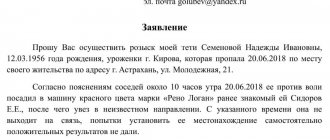Officials often appropriate state property for themselves. They do this in order to gain personal benefit thanks to their powers. Theft of state property is strictly punishable by law; such theft in most cases occurs on a large scale - from 250,000 rubles. Theft will bring serious problems to the offender, including imprisonment for up to 10 years.
What is theft of state property
Theft is the illegal taking of someone else's property for personal gain.
In our situation we are talking about property owned by the state. Theft is a general concept, so it is worth considering its subtypes in more detail. It can manifest itself in embezzlement or misappropriation of state property. Now let's take a closer look at what a crime can be. Embezzlement implies the taking of someone else's property entrusted to the culprit and its further disposal: sale, donation, transfer to a third party. Appropriation is the illegal taking of property for the purpose of further possession and use for one’s own benefit.
Important! The act may also be classified as theft. Its distinctive feature is that the offender secretly stole state property.
At the same time, he knew that the subject of the crime belonged to someone. By the way, there may be an attempted theft. In such a situation, the action will not be completed. Let's say the criminal was caught, but it turned out that he stole something completely different from what he wanted.
Fraud is also a common offence. In his case, municipal property is acquired fraudulently. It is most often voluntarily given to a person, but later it turns out that he has no rights to it. In most cases, it is possible to pull off a scam using fake documents and false information.
Control in the fight against theft and embezzlement of government. property
Despite the fact that state property by law must be protected in the same way as other forms of property, it differs from private property in its methods of use and purpose.
Therefore, strengthening control and criminal law protection are priorities in the fight against theft and embezzlement of state funds. property. It is not for nothing that researchers believe that property relations in which the state is a participant have their own characteristics, as a result of which prerequisites are created for their recognition as an independent type of relationship.
Also read: Types and sources of evidence in criminal proceedings: detailed analysis and examples
Measures to control transactions made on obviously unfavorable terms were carried out back in 1922 under the RSFSR. According to the Criminal Code of those years, there was an article implying the liability of an entrepreneur who entered into an agreement with the authorities and did not fulfill his obligations under it due to a dishonest attitude towards his obligations.
The system of existing market relations has affected the development of the economy and the formation of attitudes towards state property on the part of business. In this system, every businessman is interested primarily in making a profit, and not in a fair deal.
Business is necessary for the state to solve economic problems and development, but it requires work under strict control, constant monitoring of the situation to promptly influence the “rules of the game”, which eliminate the possibility of wasting funds and help establish effective cooperation between the authorities and business.
That is, this interpretation formally decriminalized the abuse of official rights for persons occupying a position with such powers, the abuse of which contributes to the organization of a crime, which led to the illegal privatization of national enterprises. The concept exists in the same form in the current Criminal Code, Art. 158 note 1.
According to the law, based on the sign of “wrongfulness”, the following types of theft are classified:
- Embezzlement.
- Theft.
- Robbery.
- Assignment.
- Fraud.
The development of an environment for the flourishing of corruption and theft in the 90s was the poor development of the legislative system, which adopted the concept of “theft” in the following formulation, quote: “according to the federal law of July 1, 1994, the concept of theft meant the unlawful gratuitous seizure and (or) circulation of someone else’s property.” property in favor of the perpetrator or other persons, causing damage to the owner or other owner of this property, committed for personal gain.”
According to some legal experts, the Criminal Code of the Russian Federation compensates for the lack of emphasis on the theft of state property with the following articles that impose liability on officials and officials:
- abuse of official powers (Article 286 of the Criminal Code of the Russian Federation);
- abuse of official powers (Article 285 of the Criminal Code of the Russian Federation).
When considering the term “theft”, one should turn to the experience of lawmaking in the USSR. The interpretation can be found in the Decree of the Presidium of the Supreme Soviet of the USSR dated June 4, 1947. According to the logic of the document, responsibility for embezzlement, theft, misappropriation or other theft of state property is determined. property. An interesting fact arising from this document: the law enforcement officer has the right to classify as theft any methods of seizing national property, even those not directly defined by the Criminal Code.
Statistics on the use of 285 Art. The Criminal Code of the Russian Federation, according to the Rospravosudie website:
- 2010 – 7,676 cases, of which 994 were with a guilty verdict. Regions with the largest number of cases by article: Republic of Buryatia (1132), Stavropol Territory (289), Saratov Region (286);
- 2011 -14,895 cases, of which 2,391 were with a guilty verdict. Regions with the largest number of cases by article: Republic of Buryatia (1791), Krasnoyarsk Territory (617), Saratov Region (556);
- 2012 -14,260 cases, of which 2,382 were with convictions. Regions with the largest number of cases by article: Republic of Buryatia (1604), Krasnoyarsk Territory (531), Moscow Region (519);
- 2013 – 11,627 cases, of which 72 were with a guilty verdict. Regions with the largest number of cases by article: Republic of Buryatia (1257), Republic of Khakassia (488), Krasnoyarsk Territory (466).
An obvious disadvantage: the interpretation does not focus on the offense (taking, kidnapping) in relation to the state. property with the assistance of an official who abuses his work functions, an offense in relation to state property does not receive a special status, since all forms of property must be protected on equal terms.
The number of criminal cases initiated in the first instance court regarding Article 286 is presented. Criminal Code of the Russian Federation:
- 2010 -6,279 cases, of which 754 were with a guilty verdict. Regions with the largest number of cases under the article: Moscow region (189), Rostov region (173), Krasnodar region (167);
- 2011 – 12,063 cases, of which 1,983 resulted in a guilty verdict. Regions with the largest number of cases under the article: Moscow (687), Moscow region (66), Krasnoyarsk Territory (529);
- 2012 –11,530 cases, of which 2,170 were with a guilty verdict. Regions with the largest number of cases under the article: Moscow region (606), Rostov region (587), Krasnoyarsk Territory (524);
- 2013 -9,448 cases, of which 55 were with a guilty verdict. Regions with the largest number of cases by article: Rostov region (525), Krasnodar region (432), Krasnoyarsk region (404).
It is difficult to talk about the effectiveness of the application of these norms by law enforcers: numerous identified cases of theft of state. funds (for example, embezzlement on construction for the Olympics in Sochi) remain unpunished to this day. One of the measures proposed by legal scholars is to improve the definition by adding methods of theft, including abuse of official functions.
What problems exist?
Often, in the field of public procurement, criminals perform work much cheaper than the declared value, thus the stolen money is divided among accomplices
The Russian Federation is a fairly large state, so it is almost impossible to completely control the flow of expenses and income in it. In this regard, officials and any other persons commit crimes, thinking that their act will go unnoticed.
Controlling thieves who are ordinary citizens is somewhat easier. The situation is different with civil servants. They, as a cover for their crime, use forged documentary acts, the authenticity of which in some situations is not possible to verify.
Criminals often collude with others. This is the case in public procurement. There, by agreement, work is performed, much cheaper than the stated cost. The stolen money is usually divided among accomplices.
Corpus delicti
It is important to determine the elements of the crime so that the attacker understands what punishment awaits him. We will look at the standard criteria by which an act is considered. It is extremely important to identify each point so that there is a complete picture of the crime.
What is taken into account:
- Object of crime. In this situation, it is state property. It can be different in type. The main thing is that it is valuable and belongs to the state.
- Subject of the crime. It is the person or group of persons who committed the crime. It will be necessary to consider such signs as age, social status, sanity.
- Objective side. In this case, a material motive is pursued. A person wants to make a profit through an unlawful act.
- Subjective side. Guilt, motive, purpose and emotions are determined.
It is by these moments that the crime that occurred can be characterized. It will also be necessary to determine whether this was embezzlement or embezzlement. Additionally, you will need to determine the circumstances relevant to the case. Because these criteria will determine the punishment under a specific article of the Criminal Code of the Russian Federation.
An example from judicial practice
Theft of state property and budget funds is a fairly common crime. Let's give an example: in the city of N, budget funds were allocated with targeted funding to carry out restoration work on one of the ancient monuments. Deputy Minister of Culture of this region, Mr. Ivanov allocated these funds to a company owned by his friend, Mr. Petrov. Funding for the necessary restoration work was carried out at excessively inflated prices. Money in the amount of 20 million rubles, representing the difference between the actual cost of the work and the amount allocated from the budget, was divided by citizens Ivanov and Petrov. During a funding audit, this crime was discovered. The accused cooperated with the investigation, admitted their guilt, and paid the amount stolen from the budget. The court, taking into account these circumstances, imposed punishment on the criminals under Art. 159.4, namely – imprisonment for 5 years.
Qualifying features
Before a person is convicted, qualifying criteria will need to be identified. They, again, are necessary in order to make a fair verdict. It is important to understand the size of the object and determine its value. From this it will be possible to conclude whether theft has been committed on a large or especially large scale.
It is also important to know whether the attacker committed his actions alone or whether he had accomplices. Because crimes committed by prior conspiracy are punished more severely. And in this case, all participants will suffer.
An important point is also the fact that the person abused his official powers. Let's say a citizen holds a high-ranking position in the public service. He has the opportunity to manage money or municipal property. Embezzlement of property on an especially large scale threatens a serious sentence for the offender.
Separately, it is necessary to determine whether there were negative consequences of the action. Perhaps someone was seriously harmed, perhaps even to health and life. Then the article will become even stricter, and the attacker will receive the maximum punishment.
Abuse of official position
Government officials holding high positions must remember that they must not break the law. Because if they want to make money using their powers, then they will face severe punishment. The Criminal Code has separate parts in its articles that relate to such a situation. Because if a person decides to take advantage of his official position, then he will not be able to get off with a lenient sentence.
A person can be considered to have used his work authority in the following cases:
- He received a benefit, which was expressed in money or property.
- The citizen pursued this goal in advance and understood that he was breaking the law.
- He used his position to make money. Let’s say you signed an agreement on the illegal transfer of an object or concealed the fact of a violation.
It is worth understanding that civil servants are regularly checked for integrity. Therefore, there is a high probability that the fact of criminal actions will be revealed. In this case, the person will be sued under the Criminal Code of the Russian Federation, and at a minimum he will have to pay a large fine. However, it may even get to the point where the offender is imprisoned for a long time.
Let us note that theft of state property and corruption go side by side. Because it will be quite difficult to commit theft on a large scale and not be a high-ranking employee. But for those employees who have the right to manage municipal finances and property, it is not difficult for them to commit a crime.
Inevitability of punishment
Of course, for any act provided for by criminal law, the offender must bear appropriate responsibility.
There is no way to avoid punishment. Many criminals who want to “cover their tracks” commit a number of other crimes, which together can lead to even harsher punishment. When deciding whether it is possible to evade responsibility, you need to remember the statute of limitations for bringing it to justice. In a situation where they have already expired, the citizen will not be punished. Perhaps this is the only way to evade responsibility.
It is worth remembering that if the investigation is misled and concealed from the justice authorities, negative consequences may occur. The court takes into account all these factors when considering the case, and if they are present, it may impose a more severe punishment than if the offender helped the investigation and repented of the unlawful act he committed.
Also read: What is an acquittal: its types, how is a confession of innocence made?
Problems of determining the subject for offenses related to the use of official powers
When studying the characteristics of this type of offense committed by persons occupying a certain official position, there is a narrowing of the concept of the subject of the offense and a narrowing of the definition of the method of fraud, since additional signs are imposed. Namely: the presence of an official position and evidence of the use of official functions in the implementation of a crime.
In the world of legal researchers on the topic of kidnapping using official position, two points of view have emerged regarding the wording of “theft” in the Criminal Code:
- support for the legislator’s refusal to perceive and understand theft with abuse of workers’ powers as an independent type of theft. The main argument of the supporters of this position is that the essence of such an offense as theft, fraud or embezzlement remains the same, without reference to the person’s use of official functions;
- denial of this interpretation: the use of official position especially characterizes the offense. It does not put it on the same level as theft or embezzlement - the content of theft methods touches on issues related to the presence of official functions (deception of subordinates, theft of property under the control of the criminal, the ability to give orders to people , bearing material responsibility for the resource).
The lack of precise formulations and consensus on this subject has divided legal scholars into three camps debating the subject of the offense in this case.
Three points of view of legal scholars on understanding the concept of a subject committing crimes using official functions:
- Most often, judicial practice adheres to a definition that includes both citizens exercising the functions of government officials, working in state and municipal institutions, enterprises, and institutions, as well as persons involved in management in commercial organizations not associated with the state.
- Subjects are considered to be persons with managerial functions in commercial organizations.
- According to the third point of view, in addition to the above types of officials, ordinary employees (regardless of whether they work for the state or a commercial organization) without managerial functionality fall under the definition.
Researchers give the following comment: the subject must not only commit an offense, having certain powers that allow him to organize the theft of funds, but also commit an unlawful act, using them to organize the act of theft.
More controversial issues are raised by the topic of the conditions under which it is possible to accurately determine the fact of an offense using official powers: often persons holding any position are accused by the law enforcement officer of using official functions, regardless of whether they used their powers in the implementation of the offense or not .
Following the letter of the law, it should be noted that the implementation of one’s functions to organize an offense at the stage of preparation for it (for example, creating a “false” income certificate in order to use this document in the future to receive social benefits) does not give the right to talk about theft from using utility functions. It is possible to classify a crime only when the seizure and illegal expenditure of funds has already become a fact arising from the exercise of one’s powers.
Anti-corruption measures as a way to solve the problem of theft of state property
The economic well-being of the country is directly related to the level of corruption, measures to combat bribery, fraudulent schemes, and theft of wealth and state resources.
The reasons for this situation can be called:
- Lack of effective economic reforms.
- The process of criminalization of the upper ranks of Russian society.
- Merging illegal capital with business, integrating entrepreneurs who illegally acquired wealth into government structures.
- Growth of the apparatus of officials.
The development and implementation of programs that regulate the level of corruption is a priority task of the state, because today corruption is a problem of a national scale.
The damage caused by theft is expressed in the following figures:
- the country's economy loses approximately $400 billion annually;
- the budgets of a number of government programs are stolen by 70%;
- at least 45% of the money for the development of social infrastructure was actually stolen.
At the moment, certain strategic and program measures have been developed to solve the problem. They are, as it were, a legalized action plan of the state to combat corruption, drawn up taking into account international and domestic norms, containing a list of necessary tasks, developed and approved options for measures to resolve the issue.
Such program documents are the “National Security Strategy of the Russian Federation” and the “National Anti-Corruption Plan for 2016–2017.”
Approximate statistics on the situation with bribery are as follows:
- A third of the profits of large entrepreneurs goes into the pockets of officials at various levels.
- The best places to receive a bribe are customs and state companies.
- Sociological surveys of experts show that half of the respondents are willing to give a bribe to achieve their goals in government agencies, which eloquently indicates that society is actually leading to the formation of a “Culture of Bribery.”
In the legal field, the authorities have been solving the problem since the early 2000s. Two federal laws “On combating corruption” and “On anti-corruption examination of normative legal acts and draft normative legal acts” have been developed. A positive aspect can be considered the criminalization of the actions of intermediaries involved in organizing a bribe.
With proper protection of the interests of the state, it is possible to achieve impressive results that have a positive impact on the country’s economy and the standard of living of its citizens:
- reduction in inflation;
- increase in jobs;
- increase in average income of the population by 10%;
- GDP growth;
Corruption is directly related to the abuse of official functions by officials, abuse of power and leads to the theft of state property on an especially large scale, impoverishment of at least 80% of the population.
Therefore, the question arises: is the above-mentioned standard of punishment sufficient for the law enforcement officer? Judging by the annual increase in the “theft” of funds, the conclusion suggests itself about the low effectiveness of the application of the law, the need to supplement it, and possibly toughen penalties against the state. property. And most importantly, it is necessary to achieve regular and competent implementation of measures against offenders.
Many experts agree that the creation of a legal norm regulating the actions of officials performing public functions is a necessary measure in the fight against corruption and protection of the state. property.
It is the official who abuses his position who is the subject of a corruption offense, acting contrary to the interests of society and the state. Measures to combat corrupt officials and corrupt relations should be carried out at all levels (from local to federal), with the active participation of all public institutions and organizations, and authorities.
What responsibilities are provided?
Both Russia and Ukraine provide for serious penalties for theft of state-owned property. It is impossible to say for sure which court will pronounce the verdict. Because a lot depends on how large the theft was, as well as how exactly the crime was classified. Also, accompanying circumstances play an important role, which are important to determine.
If a person is judged according to Art. 160 part 3 of the Criminal Code of the Russian Federation, then he may be given the following punishment:
- Fine up to 500 thousand rubles.
- Forced labor for up to five years. In addition to them, they can restrict human freedom.
- Deprivation of the opportunity to work in a specific field. The restriction can last up to five years.
- Imprisonment for up to six years.
These measures may be tightened based on the circumstances of the act. In the worst case, they can be imprisoned for 10 years, and the person will need to pay a fine of up to 1,000,000 rubles. It all depends on how exactly the crime was committed.
In any case, the violator will not go unpunished, and he has the right to be tried under several articles at once. If a person does not want to go to jail or part with a large sum, he should not commit theft. State property is now carefully monitored, so criminals are quickly identified.
Methods of defense in court
A person suspected of embezzlement or embezzlement of entrusted property has several options for defense in court:
- challenging the value of property (if it was not money that was stolen);
- reconciliation with the victim and a petition to terminate the criminal case (if charged under Part 1 and Part 2 of Article 160 of the Criminal Code of the Russian Federation);
- proving the fact that the perpetrator acted with the knowledge of the property owner;
- reclassification of the crime (if charged under Part 2, Part 3 and Part 4 of Article 160 of the Criminal Code of the Russian Federation);
- full or partial compensation for damage to the victim;
- collection of characteristics of the culprit.










